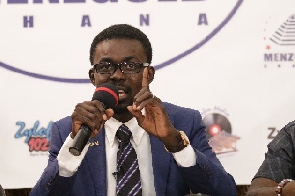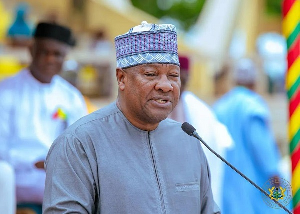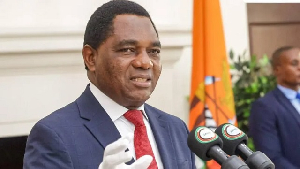Francis Agodzie, a businessman, has disagreed with the counsel for Nana Appiah Mensah, Chief Executive Officer of Menzgold Ghana Limited, that he had different signatures on documents available to the court.
Agodzie, the third prosecution witness, said that he had two signatures and if he were prompted on the exact signature he signed on the police statement, he would have done same on the witness statement.
Mr Agodzie, in his evidence in chief, told the court presided over by Justice Ernest Owusu Dappah that he signed the signatures on the documents himself.
Nana Mensah is standing trial for 61 counts of abetment, defrauding by false pretences, carrying on deposit-taking business without a license, unlawful deposit-taking and money laundering.
His plea to the amended charges is yet to be taken.
The accused has denied the charges and the court on July 26, 2019, granted him GH¢1billion bail with five sureties, three to be justified.
The court has ordered Nana Mensah to report to the police every Wednesday, pending the outcome of the case.
Mr Kwame Akufo, the counsel accused, said that regarding the police complaint statement, the witness spaced the Alphabets in his signature, but on the witness statement they were closed, but the witness disagreed.
The Defence said the four signatures on the documents before the court were not the witness’s signature entirely, but the witness disagreed, saying “l am prepared to sign my signature in open court.” Mr Akufo alleged that two of the signatures belong to the police investigating the case, but the witness disagreed.
Initially, Mr Akufo also raised an objection to the witness testifying in the Twi Language even though his witness statement was written in the English Language, and that there was a presumption that he could read and write the language.
The Director of Public Prosecutions (DPP), Yvonne Attakora-Obuobisa, opposed the objection, saying the witness gave the statement, which the prosecution sought to rely on as evidence in chief.
She said the witness was literate and could read and write English and if the witness had spoken in any language apart from the English Language, the prosecution would still have given the statement in English and interpreted to the court to illicit answers from the witness.
Ms Attakora-Obuobisa said the language in which the witness would speak would not affect the witness.
The court ruled that the most important thing was for the parties to understand the testimony of the witness.
The court said it did not find the right of the accused to fair trial being breached.
The case has been adjourned to Tuesday, January 23, 2024.
Business News of Wednesday, 24 January 2024
Source: ghanaiantimes.com.gh













